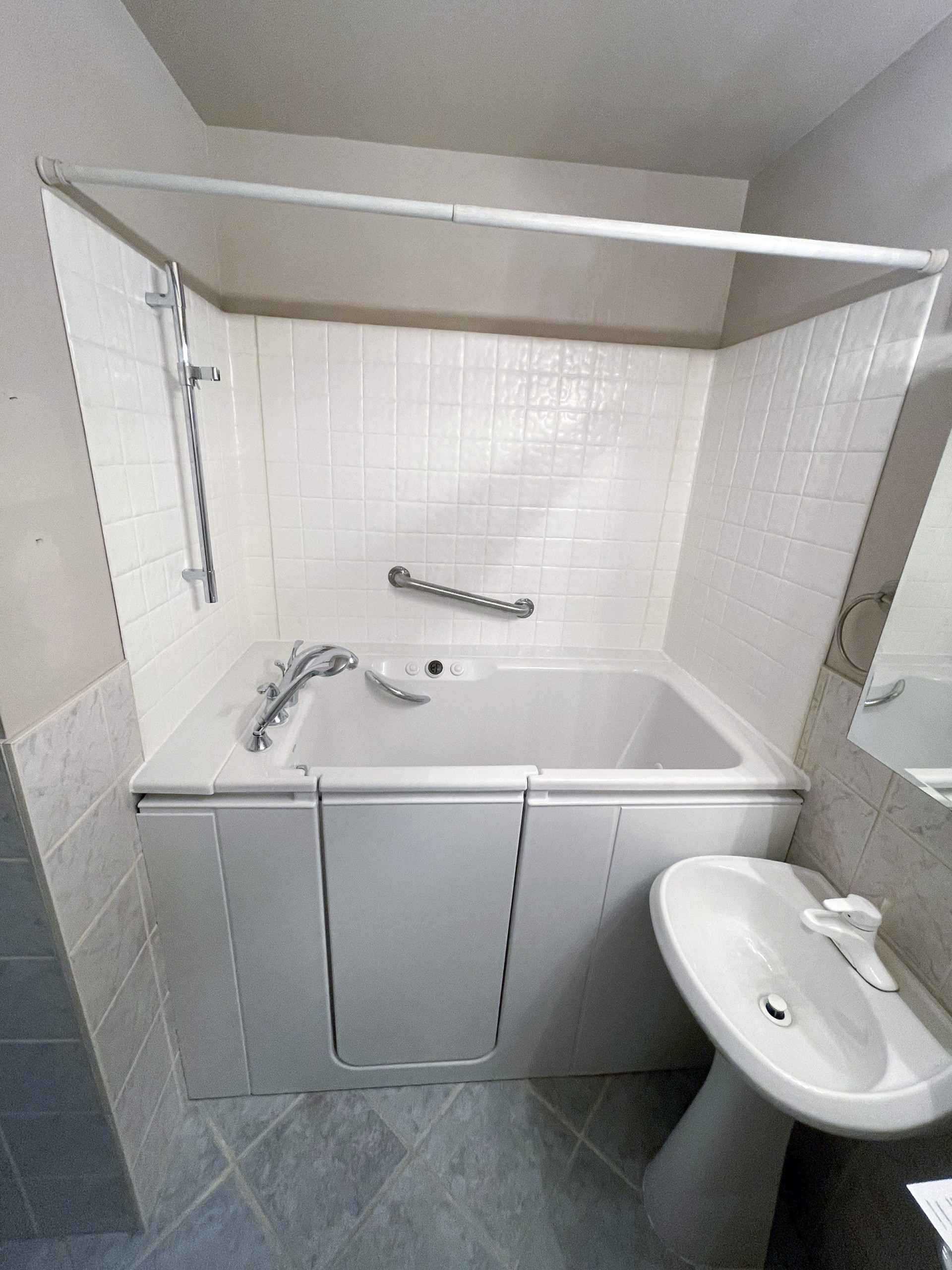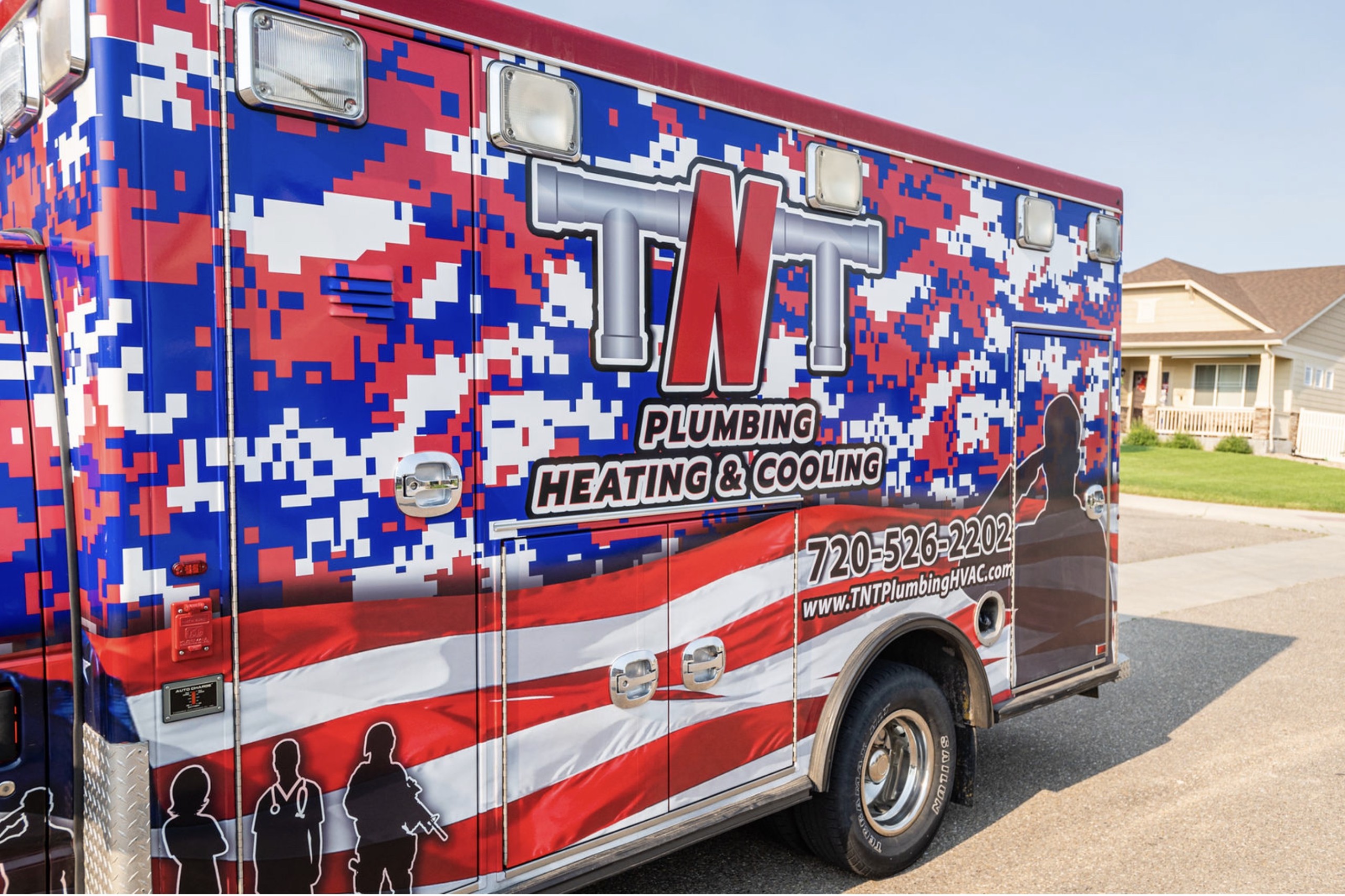Since 2009, the Colorado Companies to Watch program has sought to recognize second-stage enterprises from around the state. These companies often fly under the radar of awards programs of this type, yet they play an enormous role in fueling Colorado’s economy.
From an economic-development perspective, the importance of recognizing second-stage companies — those beyond the startup stage but still developing — is obvious: As these companies grow, not only do they employ an increasing number of people, which benefits their local economies and quality of life; they also create a need for outside services, and thus opportunity for other businesses, from restaurants to accounting firms to pet boarders, to flourish. The ripple effect on the economy is sizable, to say the least.
This year, more than 1,100 companies from industries ranging from biosciences to fitness to food and beverage submitted nominations. A judging panel made up of business and economic-development leaders throughout the state whittled those candidates down to the finalists, and finally to this year’s select cast of 47 Colorado Companies to Watch winners.
Read on to learn more about our favorite Colorado Makers and Suppliers.
Applewood Seed Company
Arvada

Who knew there’s a national flower-seed giant nestled in the Denver suburb of Arvada? Indeed, there is. Applewood Seed Co. is one of the nation’s largest open-pollinated flower seed wholesalers, with a vast and varied customer base that includes landscapers, highway and park departments, government agencies, golf courses, nursery and garden markets, farms and ranches, professional growers, and pollinator habitat growers.
The company, founded in 1965 and 100% employee-owned since 2021, contracts flower production fields both domestically and internationally with farmers of all sizes. Part of Applewood’s success lies in its emphasis on quality, customer education, and employee appreciation.
“First, we focus on seed and seed mixture quality, starting at our trial gardens and production fields, to lab testing, and to the final packaging received by the customer,” says CEO Norm Poppe. “Second, we educate customers and growers on the ecological and ornamental applications of wildflowers, including their effects on pollinator conservation and their natural beauty. Additionally, we believe our newly created Employee Stock Ownership Plan is a differentiator in employee retention, improves team member engagement, and strengthens our company’s overall vision.”
Applewood’s priorities have paid off. Since 2018, the company’s workforce has increased by 30%, and revenues have grown by 40% in that time.
Dave & Matt Vans
Gypsum

Dave & Matt Vans converts vans into fully livable lifestyle vehicles, also known as campervan conversions, for sale or rent, at some of the most affordable prices on the market.
The company has pioneered a modular build system that allows customers to customize some aspects of their vehicle while maintaining efficiency on the manufacturing side. This has enabled Dave & Matt Vans to create one of the most affordable and accessible campervans on the market.
Founded in 2019 by Dave Ramsay and Matt Felser, the company has grown from five employees in 2019, to 20 in 2020, to 27 in 2021. Sales have climbed accordingly, from $1.1 million in 2019, to $3.5 million in 2020, to $11.9 million last year.
This year, even with factory delays in chassis procurement, the company expects to deliver 250 vehicles by year-end, a 50% increase over last year. As for 2023, the company expects growth to upwards of 600+ van deliveries for the year, with an estimate of more than $50 million in revenue.
Dave & Matt Vans recently opened a new 39,000-square-foot production facility in Rifle that is projected to increase the production staff by eight to 10 this year. The expansion and increased production capability comes none too soon for a public eager to hit the road.
According to the RV Industry Association, demand for RV units grew month-over-month throughout 2021, breaking all previous wholesale shipment records. A recent survey by RVIA also reported that 72 million Americans plan to go RVing in an RV they own, rent or borrow over the next year, up from 61 million in a survey done last fall.
Fancy Tiger Crafts Co-op
Denver

Fancy Tiger Crafts Co-op is Denver’s premier location for fiber crafters. Founded in 2006 and profitable for 15 of its 16 years, the company believes that making things is good for people, community and the planet.
“We are dedicated to bringing the best, most interesting and most sustainable craft supplies from around the world,” Fancy Tiger President Christina Patzman says. “We also offer a range of classes from beginners to advanced in many types of crafting skills.”
As with so many businesses, particularly in the retail sector, the company faced considerable adversity brought on by COVID-19. During the first 15 months of the pandemic, Fancy Tiger Craft’s in-person retail on Broadway was closed. Add to that the general uncertainty of the economy. But the company has bounced back in 2022 with a projected revenue increase of 15 percent over last year.
Part of Fancy Tiger Crafts’ winning formula has been to seek out and offer new and interesting ways to practice traditional textile crafts, striving to offer both classic and innovative supplies as well as instruction for those eager to learn.
“Since many folks who are becoming interested in crafts no longer have older family members who practice these crafts, we are persistently offering and expanding our classes, and ensuring that they are accessible to future crafters and those expanding their horizons,” Patzman says.
As an employee-owned cooperative, Fancy Tiger Crafts is able to harness the skills and experience of all its employees, not just a small group of owners. Decisions are made democratically, and the variety of voices present helps the company spot potential shortcomings and issues.
“We are also all crafters ourselves,” Patzman points out, “and we love to share our own love of making things.”
Gameboard
Denver

Gameboard tabletop gaming system bridges the tactile and interpersonal experience of physical games with the expansive connectivity of digital content and online communities. For example, players can use real game pieces (like a chess set) on the surface of the Gameboard, allowing simple, nostalgic games to take place.
Launched in 2019, Gameboard has grown rapidly, with a workforce of 23 in 2021 that it expects to increase to 37 employees this year. The company’s concept brings board games to life digitally, with touch technology and a library of games that enables play anytime, anywhere and with anyone. As Gameboard Social Media Manager Robb Woods puts it: “Think Netflix meets Peloton for board games.”
Founder and CEO Shail Mehta says Gameboard’s technology has what similar products in the past lacked: a smooth, unlimited touch technology, network play, community-based features like Gameboard’s companion app, and the ability to support online parties.
“Our machine learning algorithm also continues to evolve as we become the standard in physical and digital play,” Mehta says.
Halfdays
Denver

Halfdays is a women’s ski wear brand that aims to make the outdoors a more welcoming and accessible place for all — starting with approachable, technical products and an inclusive community.
“We work very closely with our technical fabric manufacturer to develop new waterproof materials for our fashion-forward, technical garments,” says CEO Ariana Ferwerda, who founded the company in 2020. “For example, our puffer jacket is one of the most waterproof puffer jackets on the market, due to construction innovations that we were able to make with our manufacturer, designer and fabric vendor.”
Ferwerda believes there is a push, influenced by society at large, to make the ski and outdoor industry more inclusive, diverse and women-led. “We feel that there are a variety of small, independent brands that are leading the charge in this change. We also believe that Halfdays has been at the forefront of the new wave of outdoor brands.”
Halfdays’ growth in less than two years since its founding helps make Ferwerda’s point. The company more than tripled its number of employees from year one to year two, and it expects to more than double its number of full-time-equivalent employees this year. Meanwhile, sales rose nearly fourfold from year one to year two, and they are projected to more than quadruple year-over-year in 2022.
“Our capacity for growth is marked by the fact that we have over 9,000 women on our waitlist, waiting for our next collection to launch in the fall of 2022,” Ferwerda says. “We’ve actually had so many large wholesale orders placed that we’ve had to turn many of them down due to the current size of our team and capital resource limitations.”
Kokopelli
Longmont

Kokopelli creates inflatable, packable kayaks it says are the world’s lightest so that outdoor enthusiasts can explore nature in its most serene settings.
The company offers five packraft models that can accommodate one or two people and weigh between 4 and 13 pounds. The company’s goal is to further develop the markets in the 12 countries where its products are sold.
“Our vision is to be the most-recognized brand in the packraft industry worldwide,” Kokopelli President Kelley Smith says.
Kokopelli also helps its customers learn how to use their packrafts and teaches them techniques that will keep them safe on the water. In addition, it helps them find trips they can take in their area.
“Our company was founded on the single principle of innovation,” Smith said. “In the early years, this meant we were solely focused on innovating our packrafts. As we expanded, this has grown into a focus of innovating the sport through three foundational pillars: performance, education and community.”
Performance represents the continual development of high-end packrafts made from cutting-edge materials with design and user experience as the primary focus. The company seeks to grow the sport responsibly through proper education and safety training, and it builds relationships on and off the water with the paddling and packrafting community.
“COVID-19 has influenced people to get outdoors more since people couldn’t travel, so we have seen a significant increase in new customers and people wanting to get outside and be on the water,” Smith says.
LEVO
Denver
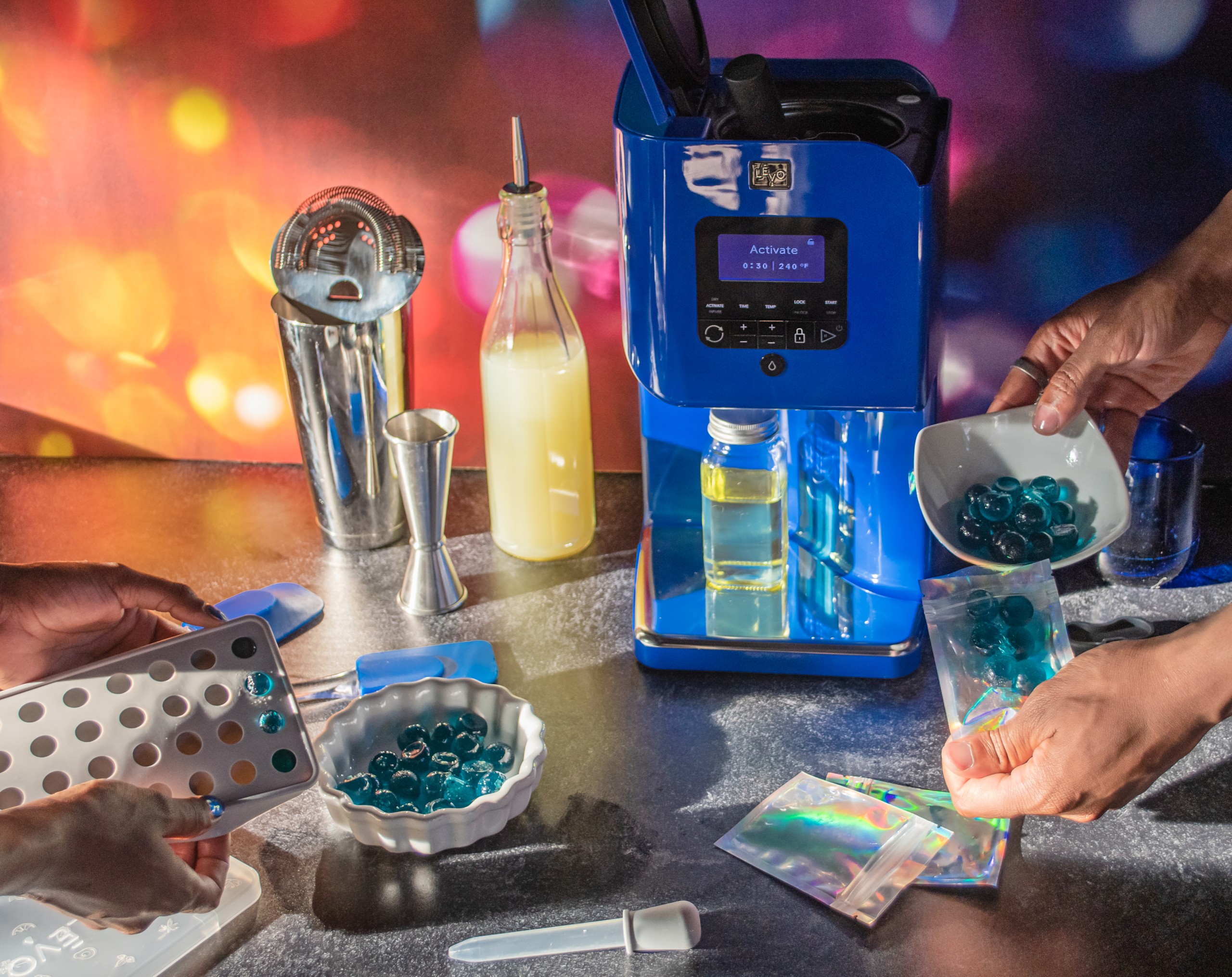
LEVO believes consumers should be able to control the ingredients in their food, so it’s created a countertop appliance that lets them make everything from oil-infused gumdrops to infused butter garlic shrimp.
LEVO’s sells oil infusers and all the accessories, mixes and other products required to make infused creations at home. Its patented technology is designed for infusing botanicals into oil and butter.
The company also offers edible kits and mixes for creations ranging from gummies and magic brownies to Ghee clarified butter and a coconut and avocado oil blend.
Herbal infusion has been used for centuries among some of the world’s earliest civilizations. Today, it’s often the secret sauce of restaurant chefs and popular skincare brands. But store-bought products marketed as natural often are over-processed contain additives or solvents of some sort.
The company also hosts a platform that lets its customers share their creations.
“We know how to engage our community and promote ‘infusiasm,’” LEVO CEO Christina Bellman says.
Pact
Boulder

Pact’s organic cotton clothing, bedding and towels are derived from sustainable crops grown on organic farms and colored with chemical-free dyes.
The company’s commitment to the environment is evident in everything it does.
Pact teamed up with an eco-tech company so its shoppers have the ability to offset the carbon footprint of their shipments. The technology calculates the shipment’s distance, the carbon footprint created and the cost to offset that carbon locally through things like purchasing wind energy credits.
Pact also runs a clothing donation program that enables its customers to donate their gently used clothing to nonprofits. They can pack the items into Pact boxes used to deliver the items they purchased and send them back to the company.
The company uses paper envelopes made from 100% post-consumer recycled paperboard and cardboard boxes made with 98% post-consumer recycled materials. Both are 100% recyclable, and the bag inside the packaging that protects clothing is made with biodegradable plastic.
“Consumers are shifting to e-commerce and are increasingly focused on sustainability,” says Drew Cook, the company’s chief financial officer.
QuikrStuff
Grand Junction
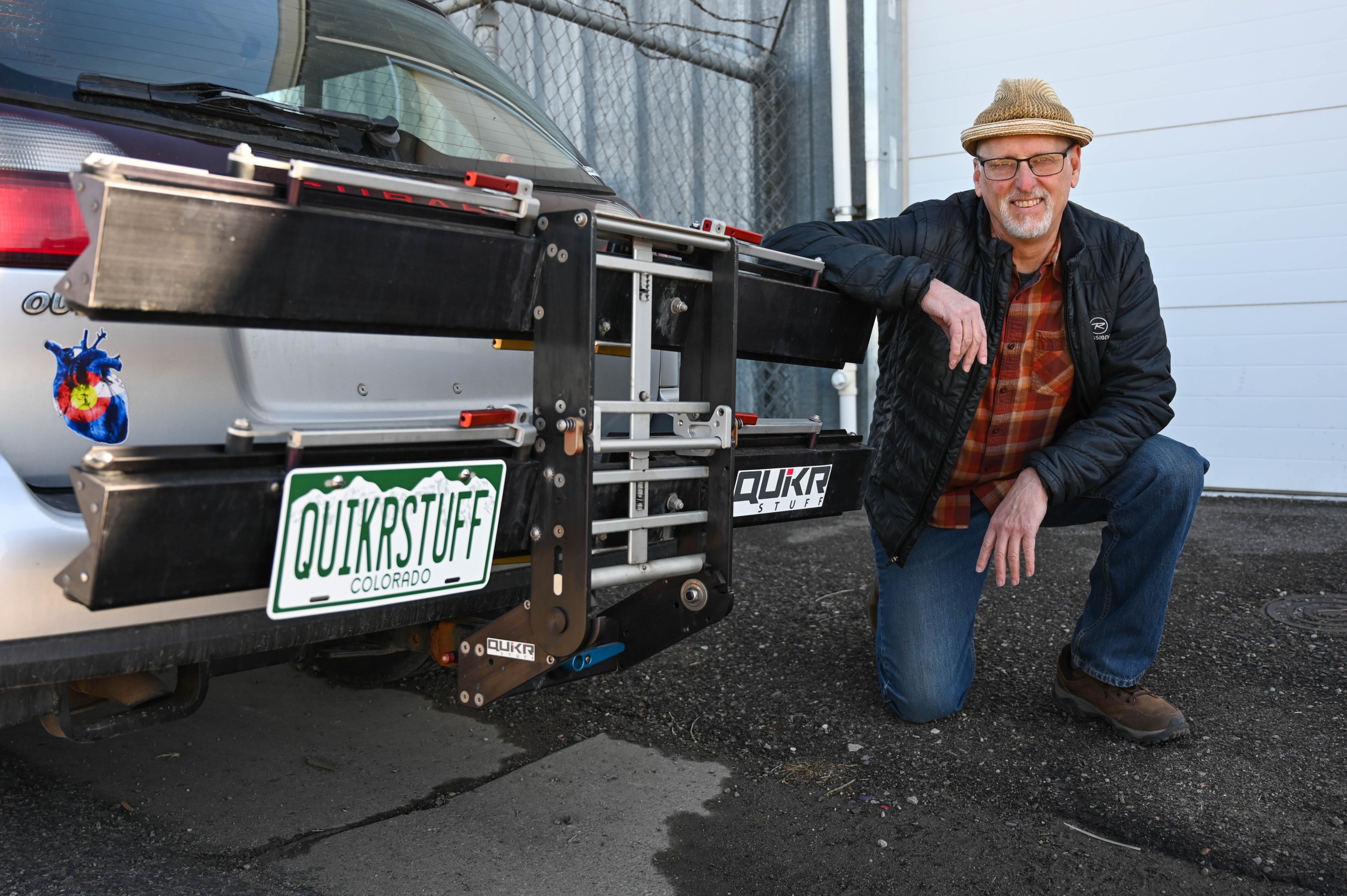
QuikrStuff’s modular, aluminum hitch bike racks have proven so popular that there’s a six-month waiting period for them to be shipped to customers.
The racks — 100% made in the U.S. — have add-ons that enable them to carry up to four bikes. They can be quickly installed on a hitch receiver without the use of any tools.
Despite shipping delays, QuikrStuff keeps its customers abreast of its progress with transparent communications and live access to our production progress queue.
“Our design, engineering and manufacturing teams have years of experience in aerospace, oil and gas, and the outdoor recreation sectors,” CEO Bryan Wachs says. “Our management team has many years of experience running, consulting and marketing across different verticals with much success.”
But similar to other manufacturers, the COVID-19 pandemic forced the company to shut down multiple times when it couldn’t get the materials it needed to make the racks.
“We have struggled to survive as a startup on the bottom of the totem pole of aluminum extrusions,” Wachs says. “Our network of mentors and advisers, including the Telluride Venture Network, has given us feedback during these tough times.”
ROLL Recovery
Boulder
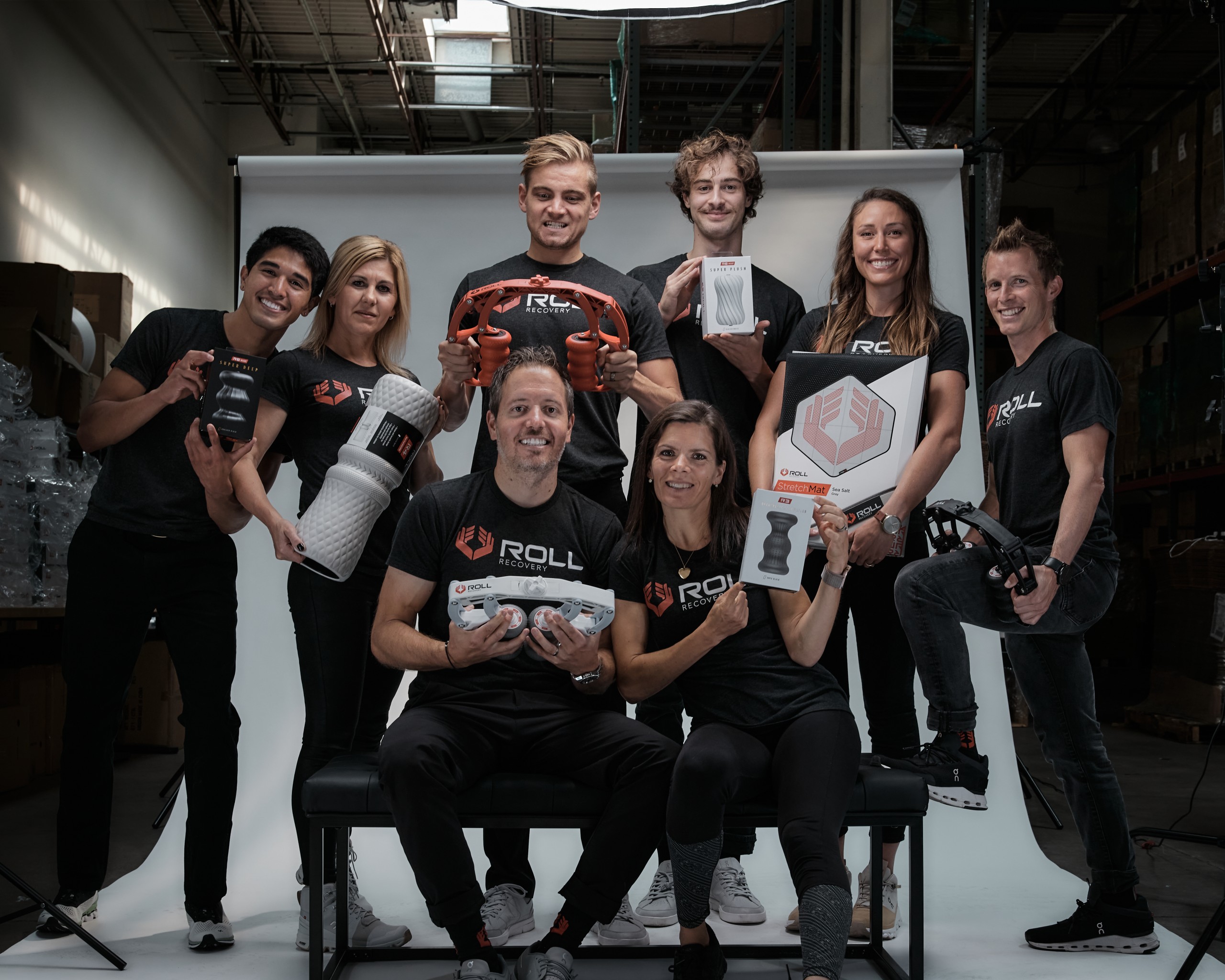
Athletes at all levels are replacing foam rollers with ROLL Recovery’s patented deep tissue massagers.
The company’s R8 applies deep-tissue massage force while the user is sitting, standing or laying down. The massage roller improves circulation and reduces inflammation as it breaks up muscle adhesions for myofascial release. Using the device speeds athletes’ recovery so they can get back to doing the sports they love.
The device can be used on IT bands, hamstrings, quads, glutes and calves. The R8 can even be used on arms.
Registered with the Food and Drug Administration, the R8 is used and recommended by therapists and practitioners as an effective tool that can be used routinely.
“We own multiple utility and design patents and several foreign patents in the EU, Australia and Japan,” ROLL Recovery founder Jeremy Nelson says. “We design and develop unique products unlike anything else in the world. We are exploring developing a line of footwear to complete our current product lineup.”
In addition to the R8, ROLL Recovery makes the StretchMat, the R3 Orthopedic Foot Roller and the R4 foam roller.
Sheets & Giggles
Denver
Since shipping its first box of sustainable bedding from a cold warehouse in late 2018, Sheets & Giggles has shipped more than 100,000 boxes and achieved $1 million in gross monthly sales.
The company is famous for its eucalyptus lyocell bedding, which has been featured twice on “Good Morning America” and won Good Housekeeping’s Best overall Sheets designation.
Sheets & Giggles lyocell fabric is made from high-quality eucalyptus wood pulp, a sustainable and renewable natural resource. The company doesn’t harvest wood from ancient or endangered forests. Instead, its eucalyptus trees are grown on sustainably managed biodiverse farms. And for every tree harvested, two more are planted.
Sheets & Giggles continues to grow rapidly and is introducing sustainable mattresses, pillows, mattress protectors, apparel and towels in 2022. In 2023, the company will release sustainable curtains, underwear and rugs.
“We are already a mainstay in the bedding industry, and have strong national recognition,” CEO Colin McIntosh says. “Sheets & Giggles has potential to be a household name in just a couple more years.”
The company also tries to do good. It donated $40,000 to Colorado COVID-19 relief in 2020 and $28,000 to cancer charities in 2021. Its reforestation efforts have resulted in tens of thousands of new trees planted around the United States.
Sherpa Equipment Co.
Berthoud
With the COVID-19 pandemic prompting more people to get outdoors for camping and off-roading, manufacture


